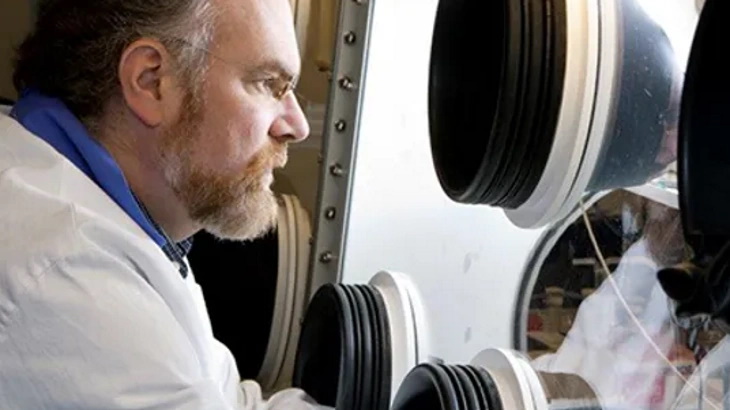Gen IV nuclear technology holds the promise of revolutionising the energy sector by significantly reducing long-lived radioactive waste and minimising the need for new uranium mining. By reusing used nuclear fuel, Gen IV systems could provide sustainable and abundant energy with a reduced environmental footprint.
The MUST (Multidisciplinary Commitments for Sweden's Gen IV Technology and Expertise) project includes researchers from Chalmers University of Technology, the Royal Institute of Technology (KTH), Uppsala University and Lund University. It will strengthen the already existing research centres in nuclear science in Sweden - ANItA (Academic-industrial Nuclear technology Initiative to Achieve a sustainable energy future) at Uppsala University and SUNRISE (Sustainable Nuclear Energy Research In Sweden) at KTH - with a clear focus on sustainable electricity production and resource use in the Gen IV system.
Technologies for fuel recovery and new manufacturing, radiation protection strategies and monitoring of reactors are being developed. Unlike previous initiatives, this project will include an entire Gen IV nuclear power system.
"The fact that we in Sweden now dare to invest in the nuclear technology of the future is very gratifying," said Christian Ekberg, coordinator of the project, Professor of Nuclear Chemistry and Industrial Materials Recycling at Chalmers University of Technology. "When fully developed, a system like this could have the potential to produce nuclear power to the same extent as we did in Sweden when we had 12 reactors running, without mining any more uranium a few thousand years."
The funding in the MUST projects by the Swedish Energy Agency marks one of its largest investments to date in the future of nuclear energy.
The results of the will provide valuable input for a case study for Gen IV implementation by Swedish small modular reactor (SMR) project development company Kärnfull Next AB.
As the commercial partner in the MUST project, Kärnfull Next - a fully-owned subsidiary of Kärnfull Future AB - said it brings a commercial perspective and expertise that "bridges cutting-edge research and practical, scalable solutions for the energy market".
Kärnfull Next Chief Strategy Officer John Ahlberg said: "Our participation in this project aligns perfectly with Kärnfull Next's mission to foster technological advancements and ensure the long-term viability of nuclear power. We believe in the transformative potential of Gen-IV technology to deliver clean, safe, and reliable energy, and we are excited to contribute to this pioneering effort."
In addition to developing Gen IV technology, the project also addresses the need for education and know-how development in nuclear and radiation sciences. By engaging younger researchers and allocating significant resources for the education and mentorship of doctoral students, the initiative aims to help rejuvenate Sweden's expertise in nuclear technology. A system for mentorship, both scientific and in leadership, has been launched as part of the project.
"Unfortunately, education in general radiation science is scarce in Sweden," Ekberg said. "KTH and Uppsala University have higher education programmes that are mainly focused on nuclear reactors. A broader approach is needed and this project fits in well with the need to take a more holistic approach to the competence issue."
"We are thrilled to be part of a project that not only advances nuclear technology but also nurtures the next generation of leaders in this field," Ahlberg added. "Kärnfull Next is dedicated to supporting the transition to a sustainable energy future, and our involvement in this Gen-IV initiative is a testament to our long-term vision and complements our day-to-day activities of prospecting for new Swedish SMR campuses."
Kärnfull Next aims to have the first commercial SMR operational at a new nuclear site in Sweden by the early 2030s.

Christian Ekberg, coordinator of the project (Image: Kärnfull Next)